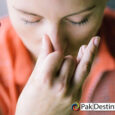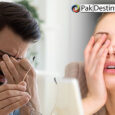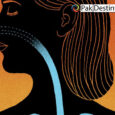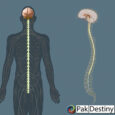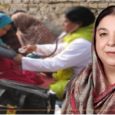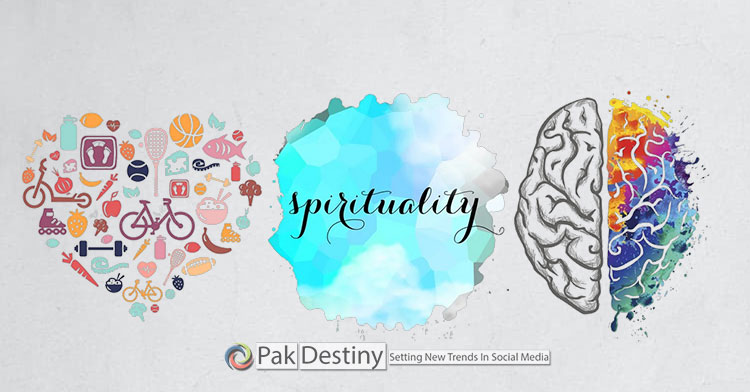
By Syed Shujaat Hussain
I would like to share my perceptions about life and the conclusions I have reached which are based on my observations and experiences and the study of various schools of thought, duly synthesized, with an earnest hope that these will instruct, inform and inspire human beings to create a safe, stable, and sane global society through an integrated and well balanced approach towards life. These are equally applicable at individual and societal levels across the geographic boundaries of the world. Our lives are structured in: physical, intellectual. emotional and spiritual dimensions All are closely interlinked and part of the same reality, though each developing gradually in stages, and cannot be comprehended in isolation of each other. Absence/deterioration of any one will adversely affect the growth of others. However, the predominance of intellect/mind is an essential transition in the evolution of spirit from a lower level to a higher level, ultimately reaching the spiritual enlightenment. This is an essential prerequisite for evolving to near perfection by imbibingthe attributes of God, and manifesting His love, compassion, mercy, forgiveness, justice, creativity, etc., for humanity, and thus becoming His image on earth. In growth lies life and in stagnation lies death. The human beings and society are perpetually evolving with time depending upon their zest for knowledge, cultural and living habits/standards, intellectual/scientific attainments, etc., which in turn eventually impact the genealogy of human race as well. This is the law of nature applicable to all forms of life including plant, animal, and human kingdoms; each bestowed with its peculiar spirit to grow and reach perfection but within its own ambit.
Health: In addition to physical health, we are most likely to get mentally, emotionally, and spiritually sick, when we succumb to temptations of life like lust for power and pleasure, greed for material wealth, selfish and unjust behaviour, pride, arrogance, etc., all leading to mental and emotional instability with pronounced egocentric and anger traits. In this process, we might even lose faith, moral values, selfcontrol and inner strength. Positive thinking coupled with faith, hope, correct orientation in life, and a strong motivation to recover need to be inculcated in our-selves and the patients. The genetic tendencies and environmental impact also play their part for becoming what we are but to a large extent, we can regulate, sublimate and control the negative tendencies by changing our mindsets and priorities in life, through education in its broadest connotation, proper grooming in the right environment, healthy eating habits, will-power, prayers, medication, psycho-therapy (if needed) and physical exercise, in order to change our lives for the better or worse. If we are honest with ourselves, we will realize that many of our physical and emotional problems could have been mitigated or altogether avoided. For this, the parents must act as role models.
Mind. The intellectual growth, in the simplest terms, means development of the mind, i.e., the faculty of reasoning and analytical abilities, and the capability to think rationally and understand objectively. This is a necessary condition for any progress to be made. Intellect and “will” to change, choose and perform, and ability to innovate and create is what separates us humans from other creatures. It is well understood that for intellectual development, education, both formal and informal, will be necessary. However, by intellectual development, I do not mean “smarts” or being well versed in a specific field or way of thinking. The fulfilling study of sciences and arts is an essential step but not a sufficient condition for one’s intellectual development. Study of mind alone does not take us beyond the mind itself just as the study of mental illness is not enough to restore sanity. Intellectual development, in my opinion, is akin to nurturing of wisdom based on knowledge and past experience. One could be very smart but lack wisdom. In most cases, it is the wisdom that leads to success and for which we have to make positive efforts. The meditation, and deeper analysis of an issue, should always lead to a positive conclusion and an action plan, and not to a mental paralysis. We should use mind as a mechanism to achieve a specific purpose after which it should go into a meditative mode and thus become more creative. There is also a close link between the intellect, mind and the spirit. One cannot achieve intellectual development unless and until both intellect and spirit complement each other and progress in concert. Intellect can be destructive without the spirit, and spirit can be blind without reason that often leads to extremism and terrorism which is a growing phenomenon in all religions and schools of thought all over the world, especially in Pakistan. The recent senseless shootings of young school children even in the USA are typical examples of intellect running riot. In other words, intellectual endeavours, without the guiding principles for spiritual growth, can lead to accomplishments that are at best esoteric and at worst destructive.
Emotions. Both acquired and of genetic origin, are a significant variable of a very complex nature and have a deep influence on the human behaviour. The capacity of an individual to use his or her emotions to the best advantage of self or others in life is what really matters. This can only be brought about by creating a balance between all the four dimensions of life and providing constructive outlets to the pent-up emotional energy. Love and hatred, serenity and anger, contentment and jealousy, pride, arrogance and humility, are some of the typical examples of an emotional state (positive or negative) while dealing with difficult situations. During turbulent periods of our lives, we must therefore learn to remain calm, and control our emotions which are the reactions of our bodies to our minds or a reflection of our minds in the bodies, and be like a deep sea which can absorb all vagaries of stormy weather. Heavily charged emotions take us away from the path of balance and make it harder for us to listen to voice of reason, wise counsel, and divine guidance coming from higher consciousness. To stay composed will require self-education/training, rational approach, a strong willpower, and sometimes a good/reliable listener to take the pressures out. We should accept people as they are, and not what we would like them to be. While giving advice, we should say things in a way that is empowering, encouraging, and touch their hearts. On occasions, it may be prudent to keep silent till we have connected with our audience and brought them to a good listening mode. Start with topics/subjects in which the others may be interested and then develop our main argument. Always begin with praise and recognition of a part of their work behaviour that we like. Most people will respond better to praise than to criticism.
Spirituality. Ibelieve spiritual development is tantamount to reaching higher awareness or higher consciousness as a part, most logically connected to the whole/ultimate and everlasting reality, not easy to comprehend. According to Dr. Lisa Miller, Professor of Psychology, spirituality can be simply defined as an inner sense of relationship to a higher power that is loving and guiding. Like the mind, the spirit is also continuously evolving. A man is born with spirituality along with her or his mind and physical body. It is only that he or she is not aware of it. It is ironical that we nourish the physical and the intellectual aspects of life in order to develop its full potential right from the beginning but hardly make an effort to make the spirituality grow alongside. Some divine teachers strongly feel that spiritual training of the child should start right in the mother’s womb through mother’s meditation and prayers, with full support of the father which provides the right environment. The higher awareness and consciousness, based on our belief in the supernatural, grows gradually with the development of mind in the forefront. In my opinion, all moral and ethical values which cannot be subjected to experimental sciences come under the domain of spirituality with a common framework that leads to its Origin i.e., God, Who through His Manifestations/Prophets, provides the guidelines without limiting the intellectual potential of human beings. Therefore, all acts of mercy, forgiveness, charity, compassion, selflessness, giving rather than taking, sacrifice, etc., are spiritual in nature, levels differing from person to person.
Many times, we attempt to acquire such awareness by virtue of an objective and nuanced study of ideologies or philosophical principles implicit in life and words. But, according to my understanding, the essence of all revealed religions is the same, i.e., to make us spiritually grow and become exemplary human-beings who are devoted to all that is good, just, and beautiful in this world and which will also prepare us for the life hereafter, on an entirely voluntary basis without any compulsions. That is where freedom of choice comes in, without which there can be no accountability. In all holy writings, there is a great emphasis on “balance” and “human rights”, and no room for extremism and terrorism. Under the concept of progressive revelations, the methodology varied from time to time to ensure its relevancy to the prevalent conditions of society but the objective remained the same. In my opinion, an endeavour to acquire higher awareness begins with a thirst for a deeper understanding of natural and supernatural, and continues with our own spiritual experiences which bring us closer to our Lord and lead us to discover Him in our hearts as an internal and eternal phenomenon. I therefore believe that if our direction is right which may be difficult to determine without Authentic spiritual guidance, intentions are pure and we continue to search, we will find our spiritual destination. We will know when we have found it by discovering a sense of humility, enlightenment, bliss, nirvana, qalb-e-mutma-inna (an ultimate spiritual condition of a fully satisfied and a pure heart), and appreciation of life, when we start living not just for ourselves but for others, when giving means more than receiving, and when higher values assume a predominant role in life. We will then reach a level where our “Essence or Developed Conscience, i.e., I or Being” becomes a reflection of our spirituality anti is always in the driving seat, and acts as a watchdog over the mind and body both of which are conditioned to our past and genetic tendencies, and already under the deep influence of our ego and emotions. This change is only possible through spiritual/moral re-education at individual level, and pressure from a reformed society. To put it simply, some thinkers define life’s sole purpose as a process of spiritually evolving oneself, while the life’s work as the service one provides to humanity-both are inherently inter-connected and contribute towards each other’s growth in my view. In short, spiritual growth is a perpetual phenomenon either towards progression or retrogression depending on our deeds, good or bad.
Conclusions. I have put these thoughts together to highlight the large potential bequeathed by God to human beings, and to emphasize a greater need for a saner and safer world where the people can develop this potential by a pro-active approach, social justice, honesty, integrity, good governance, healthy and productive living, and cultivating tolerance for each other’s customs, traditions and beliefs including that of all revealed religions who do not preach violence and killing of innocent people. For this, a deeper understanding of life and an integrated approach involving all the four dimensions of life, is essential for its wholesome advancement and inter-faith harmony. We should accept diversity as natural and part of life. We may disagree with each other but in an agreeable manner. We need to share each other’s pain, sorrow and happiness. The next generations have to learn that the ideals of life, liberty and the pursuit of happiness are not just for some but for the whole of mankind. Life is a gift of God; liberty ought to be the gift of man to the humanity with happiness as our common pursuit not only in material sense but also in the intellectual and spiritual terms. Working together, we can actualize these ideals; hence charity for all and malice towards none can take us out of the quagmire of terrorism, fear and intolerance.
The author is former Engineer- In-Chief & Founding Rector National University of Sciences & Technology (NUST)

